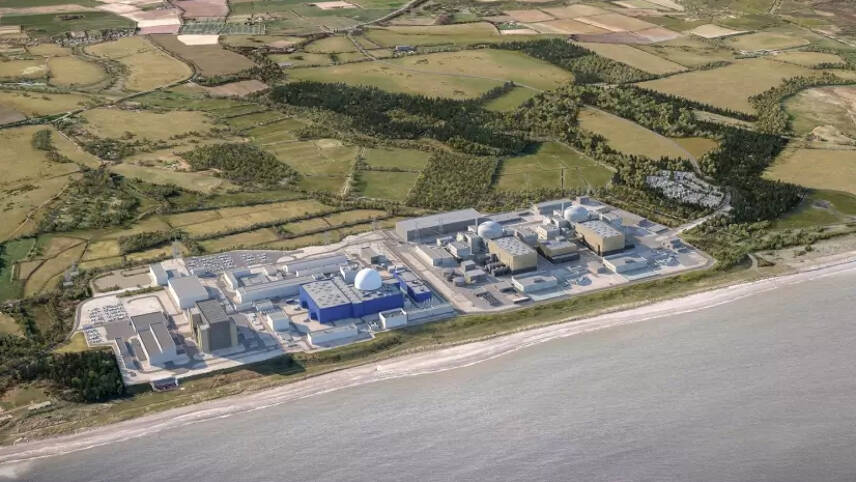Register for free and continue reading
Join our growing army of changemakers and get unlimited access to our premium content

Pictured: An artist's impression of Sizewell C. Image: EDF
Together Against Sizewell C (TASC), a pressure group comprising those living near the project in east Suffolk, was told on Monday (18 September) that a Court of Appeal judge believes its case should be reconsidered.
The case concerns the potential impact of the power plant on local water supplies. TASC’s argument is that the green light was given for the project by then-Energy-Secretary Kwasi Kwarteng against the advice of the Examining Authority (EA). Part of the reason for the EA’s advice was that the plans for the plant did not detail the potential environmental impact of a large desalination plant.
TASC now has the opportunity to appeal against the High Court’s original decision to refuse a judicial review. Its chair Jenny Kirtley believes the appeal “has a real prospect of success”.
Friends of the Earth’s Suffolk branch is supporting TASC with its legal efforts. The group argues that, not only has the plant’s full impact on water systems not been considered, but there is not yet enough information on preventing damage to a nearby nature reserve.
Continued investment
Spokespeople for the EDF-led nuclear project have told media that they will defend the Government’s decision to award a development consent order (DCO) for Sizewell C.
They have also stated that the project remains in a strong position and do not believe the news on the legal challenge will dampen the private investment process.
The Government this week opened a new platform for prospective private investors to register their interest in supporting Sizewell C. Only those with “substantial experience in the delivery of major infrastructure projects” will be successful. Investors will need to complete a pre-qualification assessment in the first instance.
Sizewell C will take a minimum of £20bn to deliver and it has been reported that it is unlikely for the project to raise this full amount before the end of 2024. Further delays could then result from the next UK general election, which is due to take place by January 2025 at the latest. EDF expects at least 60% of the cost to be footed by private investors.
The UK Government introduced the use of a regulated asset base model to fund Sizewell C under Boris Johnson. This approach enables investors to recoup some of their costs through taxation during the construction phase.
Subsequently, the Government has poured more than £1bn from Westminster coffers into the project. Recent funding rounds have been intended to ready the site for construction and to train skilled workers.
In opening the project to investors, the Government stated that it was “at the heart of the UK’s civil nuclear revival”.
Through the 2022 Energy Security Strategy, the Government set an ambition for the UK to host up to 24GW of nuclear capacity by 2050. This will include a mix of large-scale projects – at least one to be delivered this decade – and small modular reactors.


Please login or Register to leave a comment.